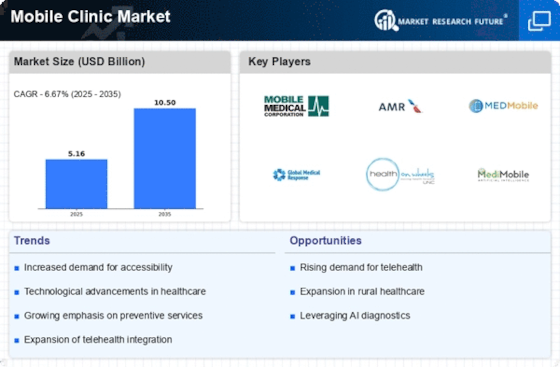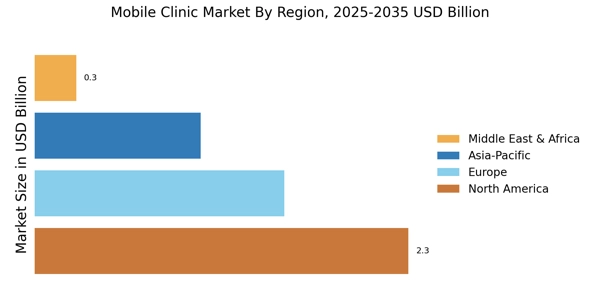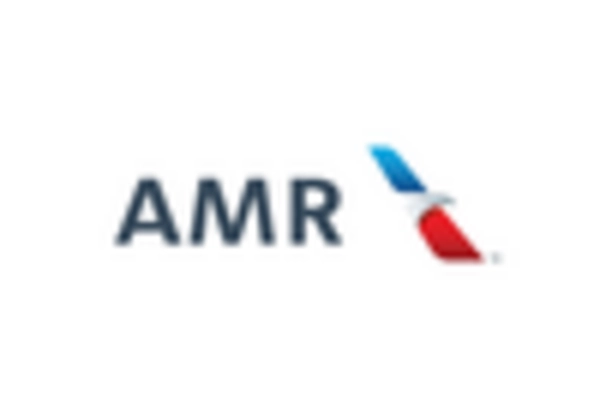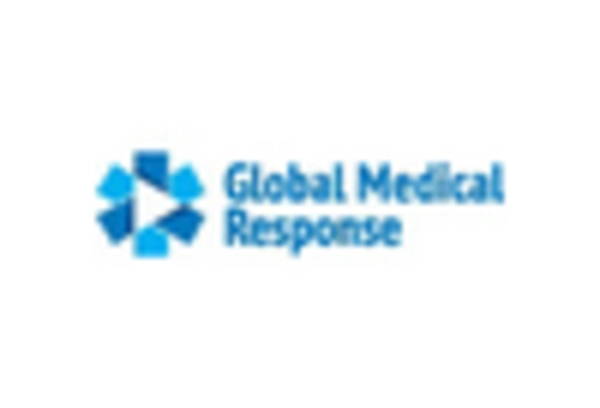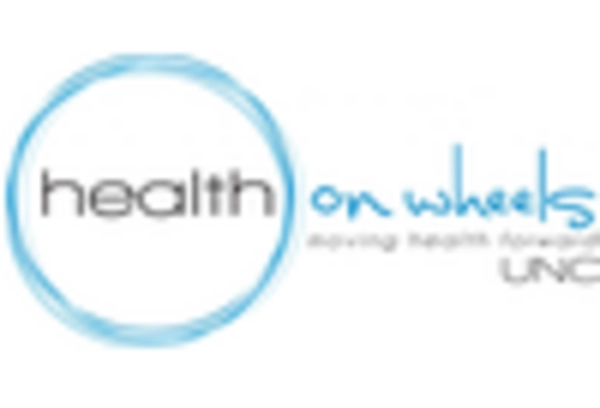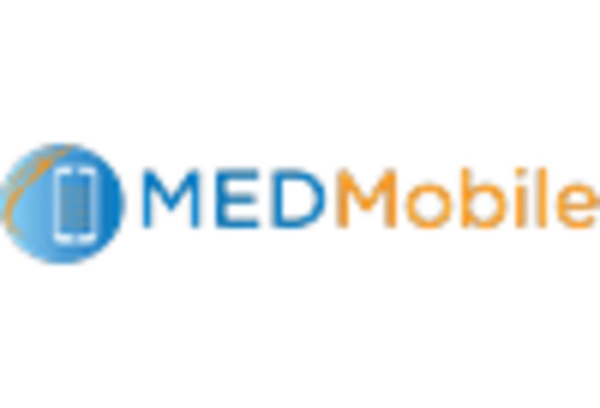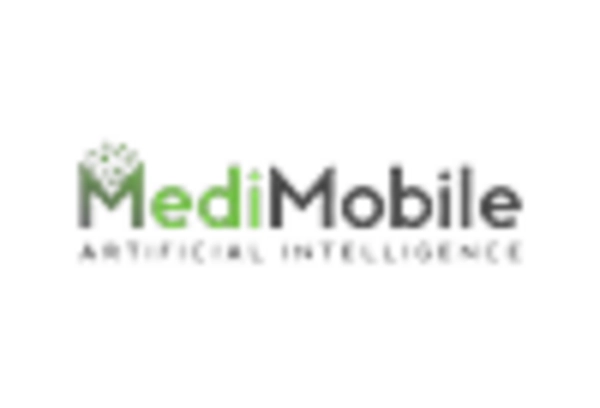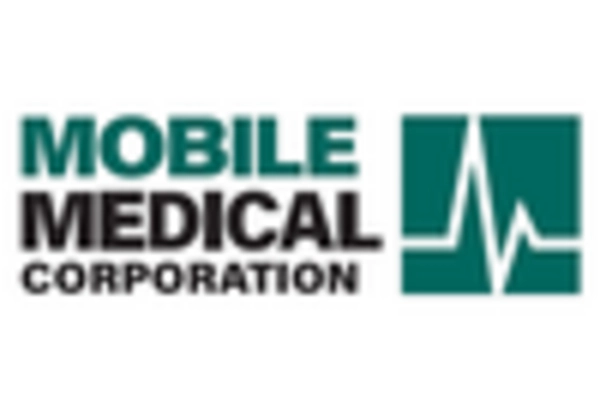Government Initiatives and Funding
Government initiatives and funding significantly influence the Mobile Clinic Market. Many governments recognize the importance of mobile clinics in addressing healthcare disparities and improving public health outcomes. As a result, various programs and grants are being established to support the development and operation of mobile clinics. For example, funding from health departments and non-profit organizations is often allocated to enhance mobile healthcare services in underserved areas. Recent statistics suggest that government funding for mobile health initiatives has increased by over 15% in the past year. This financial support not only facilitates the establishment of new mobile clinics but also ensures that existing ones can expand their services. Consequently, the Mobile Clinic Market is poised for growth as government backing continues to bolster its operations.
Rising Demand for Accessible Healthcare
The Mobile Clinic Market experiences a notable surge in demand for accessible healthcare services. As populations grow and urbanization increases, many individuals find it challenging to access traditional healthcare facilities. Mobile clinics offer a practical solution, bringing healthcare directly to underserved communities. This trend is particularly evident in rural areas, where healthcare resources are often limited. According to recent data, approximately 20% of the population in certain regions lacks access to essential health services. The Mobile Clinic Market addresses this gap, providing vital services such as vaccinations, screenings, and primary care. This increasing demand for accessible healthcare is likely to drive the expansion of mobile clinics, as they adapt to meet the needs of diverse populations.
Increased Focus on Preventive Healthcare
The Mobile Clinic Market is witnessing a heightened focus on preventive healthcare measures. As awareness of the importance of early detection and disease prevention grows, mobile clinics are increasingly being utilized to provide preventive services such as screenings, immunizations, and health education. This shift towards preventive care is driven by the recognition that proactive health management can reduce long-term healthcare costs and improve overall community health. Data suggests that preventive care can lower healthcare expenditures by up to 30% in the long run. Mobile clinics are well-positioned to deliver these essential services, making them a vital component of the healthcare landscape. As the emphasis on preventive healthcare continues to rise, the Mobile Clinic Market is likely to expand its offerings to meet this demand.
Community Engagement and Health Education
Community engagement and health education are pivotal drivers in the Mobile Clinic Market. Mobile clinics not only provide healthcare services but also play a crucial role in educating communities about health issues and promoting healthy behaviors. By actively involving community members in health initiatives, mobile clinics foster trust and encourage individuals to seek care. Recent studies indicate that community engagement can lead to a 25% increase in health service utilization. Furthermore, mobile clinics often collaborate with local organizations to tailor their services to the specific needs of the community. This approach not only enhances the effectiveness of healthcare delivery but also strengthens community ties. As the Mobile Clinic Market continues to prioritize community engagement, it is likely to see sustained growth and a positive impact on public health.
Technological Advancements in Mobile Clinics
Technological advancements play a crucial role in shaping the Mobile Clinic Market. Innovations such as telemedicine, electronic health records, and mobile diagnostic tools enhance the efficiency and effectiveness of mobile clinics. These technologies enable healthcare providers to deliver high-quality services while maintaining accurate patient records. For instance, the integration of telehealth services allows patients to consult with specialists remotely, thereby expanding the range of services offered by mobile clinics. Furthermore, data indicates that the use of technology in healthcare can improve patient outcomes by up to 30%. As these advancements continue to evolve, the Mobile Clinic Market is likely to see increased investment and growth, as stakeholders recognize the potential for improved healthcare delivery.


